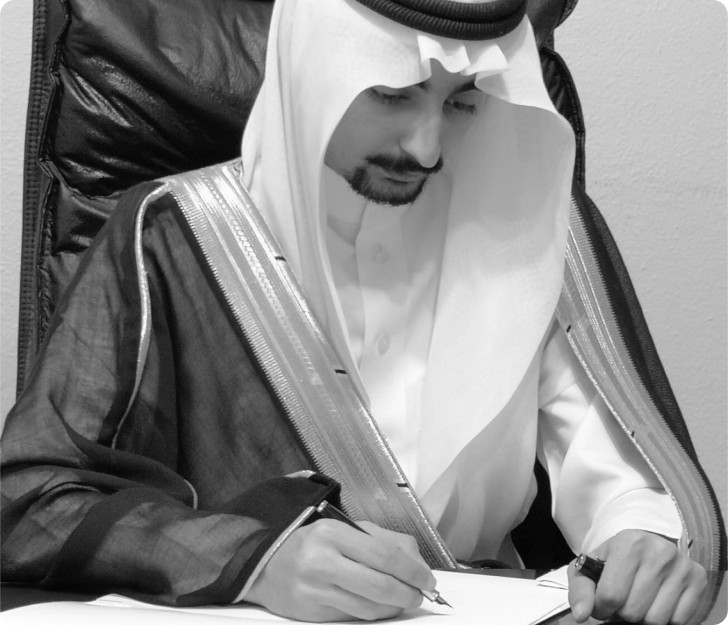Human scribble!
The life and vitality of a language lies in its cultural framework and civilizational environment. Language is not just letters formed according to certain connections and rules, but rather a mirror that reflects the depth of civilizations and embodies their distinct cultural icon. Al-Rafi’i says that nations die with the disappearance of their language, as the key to civilization is language and nations do not exist without a cultural space that contains them. If we look at Greek civilization, we find that the philosophy of Plato and Aristotle created terms formed in Greek letters, which in turn transmitted this civilization to the Romans and after them, through translation These works reflected to us the state of the cultural society at that time.
The wider the cultural space of a language, the greater its geographical area, and the greater its importance to the entire world. As for the spread of civilization, it is a political goal for nations, and it is a sign of their dominance and greatness. Therefore, many countries sought to strengthen their civilizational position through cultural colonialism. Despite the limited vocabulary of the French language, it spread it in many African countries!
As for Arabic, the language of statement, eloquence, and miracles, it was a universal language that the non-Arab mastered before the Arab, and the world took pride in it, to the point that a non-Arab achieved such mastery and prowess in the Arabic language, to the point that he mocked the Arabs themselves, saying, “I am of non-Arab origin, and I surpassed the Arabs in their language.” He was told, “Go.” To so-and-so, if he does not distinguish your origin, then you have defeated us with our language! He went to the Arab’s house and knocked on the door. He saw the daughter of the owner of the house asking who was the knocker. He said, “I am an Arab who wants to talk to so-and-so.” She said to him, “He went to Al-Fayafi, and if the Fayyi came back, he did.” He said to her, “Where did he go?” She said to her mother: This is a foreigner asking about my father.
It is no wonder that American English has become the language of learning and a form of progress. This is an inevitable result of American economic, political and media dominance. Even the British accent began to decline compared to its American counterpart. It is no wonder that some English vocabulary is derived from Roman Latin, which was influenced by Greek. I do not know how the Arabization of these words turned out. This is what immortalized Greek philosophy and transferred it to the twenty-first century.
The language is developed and does not remain stable, and development does not mean replacing or replacing the originals, but rather innovation and renewal in literary aspects. The vertical poem developed in the Andalusian era – and this reflects to us the cultural dimension of the Abbasid state at that time – through Andalusian stanzas.
These stanzas, which I consider to be the nucleus of the modernist tafa’ilah poem, created a cultural development that affected prose writings, the format of pulpit sermons, and so on.
The survival of civilization depends on its literary production, and the imminent danger is everything that leads to a decrease in the Arab literary stock. According to Ibn Khaldun’s opinion, a poet cannot be a poet unless he memorizes ten thousand verses. The decline in literary stock makes the upcoming development process difficult and may even reach the limits of the impossible. Repeating traditional meanings will in no way lead to the creation of new poetic images that are an addition to the cultural content in general. Whoever recited sentences in Souq Okad hundreds of years ago did not affect the quality of our contemporary poems. Only creative and innovative content contributes to development.
Perhaps the best conclusion is the line of Ahmad Abu Zaid (contemporary), who said:
“It is as if we, with water around us,
are people sitting around them with water.”



